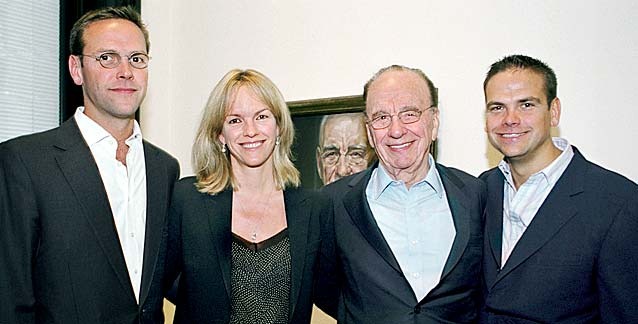|
Ready for the vultures
First of all I had a few requests to comment on the News International
stuff and its relevance to the McCann case. The affair has now mutated
into a battle between the BBC/Guardian network, the real establishment
of the UK, sharing both outlook and personnel, on one side and the Tory
government, which has cut the BBC’s income and is willing to allow the
insolvent Guardian to go into liquidation, on the other. The Murdoch
dynasty, that slowly dying creature, too weak to defend itself against
vengeful enemies, is being bloodily dismembered in the greater
struggle. In this somewhat frenzied situation the participants are also
the communicators so we aren’t going to get too much objective news, are
we? And until events quieten down we won’t be able to draw long-term
conclusions about the future of the politics/media/public sandwich.
The fault lines in the UK media, which the McCann affair highlighted so
mercilessly in 2007, remain. The newspaper industry of the last three
decades with its flabby model of “serious” newspapers containing very
little news but somehow running to dozens of pages of opinion slotted
in between the advertising and the thoroughly crooked motor, travel
and fashion sections is still in terminal decline.
The news agency feeds which the papers subscribe to and
re-write/embroider according to their stance are now available, like
hotel and airline booking pages, to all of us direct on our screens so
we don’t need them any more than we need travel agents. We read them for
diversion now, not real information, and with one exception they aren’t
very entertaining. Only the cynical but brilliant Mail, something more
than a tabloid in the strict sense, the first daily to make money from
its increasingly integrated internet operation, has realised this and
is in good health. The classical tabloids are now lumpen comics,
smelling of beer, bad breath and dirty laundry. It is a great pleasure
to see over two hundred News of the World staff made unemployed: no,
they are not innocent victims, they were the paper.
I do not believe that Murdoch or Murdoch’s papers in themselves have, in
any way, protected the McCanns. That protection, as Kate McCann
confirms, was sealed by the visits of the couple’s criminal lawyers to
all the main UK media editors in late 2007 during which the latter were
told, correctly, that the McCanns were bound to win every libel case
they bothered to pursue since the evidence did not exist for a defence
based on truth.
The “it was the Sun what won it” consensus among all three parties that
the media have to be continually cultivated, embraced and smooched
because in a democracy it cannot be controlled or ignored, is finally
breaking down and that has to be a good thing, despite the inevitable
disappointment that it will bring to those who believe the
politics/media interface can one day be permanently squeaky clean. It
can’t, but it can certainly be periodically washed down.
And the big question behind all the noise and fury remains. Are voters,
consumers, readers and watchers a bovine herd who can be directed
through the desired gate via a more subtle Sun and the techniques of
news management, or not? Despite the disturbing evidence of the last
general election when, in the first televised debate between the party
leaders, a man with nothing to offer except the childish, if not
Hitlerian, promise that “he would be different” was declared by the
public the consistent winner, the question remains open.
The politicians, at least the more thoughtful of them, see a glimmer
ahead: the same technology which has broken the stranglehold of the
overground media on shared opinion also offers the possibility of a
more direct link between Parliament and its debates and committees –
which we can now get on our screens as easily as blogs – and the
public.
Who knows where that one could lead? Would it weaken the industry of
news management itself rather than the increasingly obsolescent power of
the proprietors and channel owners? Would it change the tight machinery
of newsfeed and presentation, information as product placement,
practised by the revolting Mitchell and his like in the McCann case,
replacing, to revert to the metaphor, the dodgy travel agent world and
its associated bribery and corruption via the newspaper travel pages,
with the more anarchic and slightly less easily manipulated world of
Trip Advisor? Here’s hoping.
Now what about this mystery? Ah yes, another post. |



